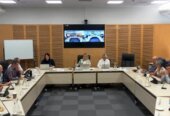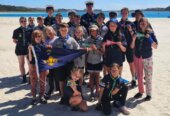A Waipā hapū representative group is being overwhelmed with resource consent applications which should be reviewed by staff first.

The Iwi Consultative Committee met last week.
Council staff have acknowledged they are “pushing” more applicants to talk to consult first with mana whenua – and that should not come at a cost to them.
Ngā Iwi Tōpū O Waipā meets monthly to consider resource consent applications. It also considers issues brought directly to iwi for consultation and consideration and nominates members on to Waipā District Council’s Iwi Consultative Committee.
The consultative committee was told in April the number of pre-resource consents Ngā Iwi Tōpū was receiving, was alarming.
“You are sort of caught off guard a bit, because the process isn’t being followed,” said committee member Haupai Puke.
The issue has now been aired by chair Gaylene Roberts. “We just need to do things a lot better than we have been,” she told the committee last week.
Puke said a number of applications were going straight to Ngā Iwi Tōpū, without first going through council channels. As a result the council didn’t have an accurate record of the number of applications that Ngā Iwi Tōpū was receiving.
Roberts said they were not receiving compensation for time spent processing the applications.
Strategic Partnerships manager Gary Knighton and Roberts have since been working together to find a solution.
“We need to do something in that space, we are pushing more and more for applicants to talk to mana whenua first,” Knighton said.
“We accept that there is no reason why mana whenua should be out of pocket for doing that.”
Roberts said not being compensated for their work was just one of many problems Ngā Iwi Tōpū faced.
“That is a little tip of the iceberg of the problems that we deal with,” she said. “We are talking about people who are retired… we have to make the work lighter for them, when they do any site visits or any work.”
She said that they are in need of administrative assistance, so emails could be responded to quickly, and kaumatua could visit sites without worrying about administrative obligations.
Knighton said council first needed to work out what the cost of any administrative assistance, or system changes for Ngā Iwi Tōpū would be.
“Our next step is to identify what this beefed up Ngā Iwi Tōpū resource looks like,” he said.
“We do have some budget put aside for this, I am not sure whether it would fall within that or not.”
Dominic Tumoana suggested to the committee that managing the resource consent data through an online portal could make things more efficient for the different branches of council.
“It probably is a good solution to look at, we don’t have anything in the pipeline at the moment, but are very open to having those suggestions made,” said Knighton.








